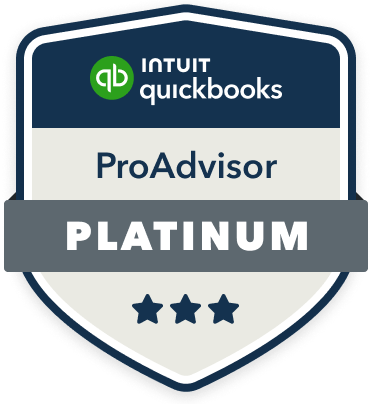Unveiling the Top 8 Finance Questions Every Small Business Founder Must Ask in 2024
As a small business founder, staying on top of your finances is essential for long-term success. With the ever-changing economic landscape, it's crucial to ask the right finance questions that will guide your decision-making process in 2024. In this article, we unveil the top 8 finance questions every small business founder must ask to thrive in the coming year.
SYSTEMS AND SOFTWARE


From understanding your cash flow and managing expenses to evaluating investment opportunities and planning for taxes, this comprehensive guide will provide you with the knowledge and tools you need to make informed financial decisions. We'll explore topics such as budgeting, forecasting, risk management, and capital allocation to ensure that you're well-equipped to steer your business towards financial stability and growth.
Whether you're a seasoned entrepreneur or just starting out, these finance questions will help you navigate the complexities of managing your business's finances in 2024. By equipping yourself with the right information and insights, you'll have the confidence to make strategic financial decisions that align with your long-term goals. Get ready to take control of your small business's financial future.
Importance of Finance Questions for Small Business Founders
As a small business founder, understanding and managing your finances is crucial for long-term success. In the ever-changing economic landscape, asking the right finance questions can guide your decision-making process and ensure the financial stability and growth of your business in 2024.
To navigate the complexities of managing your business's finances, it's essential to ask the right questions. These questions will help you gain valuable insights into your financial performance, identify potential risks and challenges, and make informed decisions that align with your long-term goals.
Question 1: What Are the Key Financial Metrics to Track for My Business?
To effectively manage your business's finances, it's important to track key financial metrics that provide a clear picture of your financial performance. These metrics will help you monitor the health of your business and make data-driven decisions.
Some key financial metrics you should track include:
1. Revenue: Tracking your revenue allows you to assess the overall financial health of your business and identify areas for growth.
2. Profit Margins: Monitoring your profit margins helps you understand the profitability of your products or services and make necessary adjustments to maximize profits.
3. Cash Flow: Managing your cash flow is essential for ensuring you have enough cash on hand to cover expenses and invest in growth opportunities.
4. Accounts Receivable: Monitoring your accounts receivable helps you ensure timely payment from customers and maintain a healthy cash flow.
5. Inventory Turnover: Tracking your inventory turnover helps you optimize inventory levels, reduce carrying costs, and identify slow-moving or obsolete inventory.
6. Customer Acquisition Cost: Understanding your customer acquisition cost helps you evaluate the effectiveness of your marketing and sales efforts.
By tracking these key financial metrics, you'll have a better understanding of your business's financial performance and be able to make informed decisions to drive growth and profitability.
Question 2: How Should I Allocate My Budget for Different Business Functions?
Proper budget allocation is crucial for managing your business's finances effectively. It involves determining how much of your resources should be allocated to different business functions, such as marketing, operations, research and development, and employee salaries.
When allocating your budget, consider the following factors:
1. Business Goals: Align your budget allocation with your business goals. If your goal is to expand your customer base, allocate a larger portion of your budget to marketing and sales initiatives.
2. Historical Data: Analyze historical data to identify areas of your business that require more investment. For example, if you notice a decline in customer satisfaction, allocate more resources to customer service and support.
3. Industry Standards: Research industry benchmarks and best practices to ensure your budget allocation is in line with industry norms. This will help you stay competitive and allocate resources effectively.
4. Flexibility: Keep your budget flexible to accommodate unexpected expenses or changes in market conditions. It's important to have contingency plans in place to adapt to unforeseen circumstances.
By strategically allocating your budget based on these factors, you'll be able to optimize your business's financial resources and drive growth in the areas that matter most.
Question 3: What Are the Best Practices for Managing Cash Flow?
Managing cash flow is vital for the financial health and stability of your small business. It involves monitoring the inflow and outflow of cash to ensure you have enough liquidity to meet your financial obligations.
To effectively manage your cash flow, consider the following best practices:
1. Create a Cash Flow Forecast: Develop a cash flow forecast that outlines your expected cash inflows and outflows over a specific period. This will help you anticipate cash shortages or surpluses and take proactive measures to address them.
2. Invoice Promptly and Follow Up: Invoice your customers promptly and follow up on any overdue payments. Implement clear payment terms and offer incentives for early payment to improve cash flow.
3. Negotiate Favorable Payment Terms: Negotiate favorable payment terms with your suppliers to extend payment deadlines and improve cash flow. This can help you manage your cash flow more effectively.
4. Reduce Unnecessary Expenses: Regularly review your expenses and identify areas where you can cut costs without affecting the quality of your products or services. Eliminating unnecessary expenses can improve your cash flow.
5. Maintain a Cash Reserve: Set aside a portion of your revenue as a cash reserve to cover unexpected expenses or temporary cash flow gaps. This will provide a safety net and ensure your business's financial stability.
By implementing these best practices, you'll be able to maintain a healthy cash flow and ensure the financial stability of your small business.
Question 4: How Can I Effectively Manage Debt and Loans?
Debt and loans can be powerful financial tools for small business owners, allowing them to invest in growth opportunities or manage cash flow fluctuations. However, it's essential to manage debt effectively to avoid financial strain and maintain a healthy financial position.
Here are some tips for effectively managing debt and loans:
1. Evaluate Your Debt Capacity: Determine your debt capacity by analyzing your cash flow and financial projections. This will help you understand how much debt your business can comfortably handle.
2. Shop for the Best Loan Terms: Compare loan options from different lenders to find the best terms and interest rates. Consider factors such as repayment terms, interest rates, and fees before making a decision.
3. Create a Debt Repayment Plan: Develop a debt repayment plan that outlines how you'll pay off your loans. Prioritize high-interest debt and consider making extra payments when possible to reduce interest costs.
4. Monitor and Manage Interest Rates: Keep an eye on interest rates and consider refinancing your loans if you can secure a lower rate. This can help reduce your interest expenses and improve your cash flow.
5. Avoid Taking on Unnecessary Debt: Only take on debt when necessary and for strategic reasons. Avoid using debt to cover operational expenses or fund non-essential activities.
By effectively managing debt and loans, you'll be able to leverage them as tools for growth and maintain a healthy financial position for your small business.
Question 5: What Tax Strategies Should I Implement for My Business?
Proper tax planning is crucial for minimizing your business's tax liability and maximizing your after-tax profits. By implementing effective tax strategies, you can optimize your business's financial position and allocate resources more efficiently.
Consider the following tax strategies for your small business:
1. Stay Updated on Tax Laws: Stay informed about changes in tax laws and regulations that may impact your business. Consult with a tax professional or accountant to ensure compliance and take advantage of any available tax incentives.
2. Maximize Deductions: Take advantage of all available deductions and credits to reduce your taxable income. Keep detailed records of your business expenses and consult with a tax professional to ensure you're maximizing your deductions.
3. Consider Tax-Advantaged Retirement Plans: Explore tax-advantaged retirement plans, such as a Simplified Employee Pension (SEP) IRA or a Solo 401(k), to save for retirement while reducing your taxable income.
4. Evaluate Entity Structure: Assess your business's entity structure (e.g., sole proprietorship, partnership, LLC, S corporation) to ensure it aligns with your tax planning goals. Different entity structures have different tax implications.
5. Plan for Estimated Tax Payments: Estimate your tax liability and make quarterly estimated tax payments to avoid penalties. Consult with a tax professional to determine the appropriate quarterly payment amount.
By implementing effective tax strategies, you'll be able to minimize your tax liability, maximize your after-tax profits, and ensure compliance with tax laws and regulations.
Question 6: How Can I Assess the Financial Health of My Business?
Assessing the financial health of your business is crucial for making informed financial decisions and identifying areas for improvement. By regularly evaluating key financial indicators, you'll have a better understanding of your business's financial performance and be able to take corrective actions when needed.
Consider the following methods to assess the financial health of your business:
1. Financial Ratio Analysis: Conduct a financial ratio analysis to evaluate your business's liquidity, profitability, efficiency, and solvency. Key ratios to consider include the current ratio, gross profit margin, return on assets, and debt-to-equity ratio.
2. Compare Against Industry Benchmarks: Compare your financial performance against industry benchmarks to identify areas where you excel or lag behind. This will help you gauge your business's competitiveness and identify areas for improvement.
3. Cash Flow Analysis: Analyze your cash flow statement to assess the timing and magnitude of cash inflows and outflows. This will help you identify any cash flow issues or opportunities for improvement.
4. Review Financial Statements: Regularly review your income statement, balance sheet, and statement of cash flows to gain insights into your business's financial performance. Look for trends, anomalies, or areas that require attention.
5. Engage with Professionals: Seek guidance from financial professionals, such as accountants or financial advisors, to gain a deeper understanding of your business's financial health and identify areas for improvement.
By regularly assessing the financial health of your business, you'll be able to make data-driven decisions and take proactive measures to improve your financial performance.
Question 7: What Are the Potential Risks and Challenges in Financial Management?
Financial management comes with its fair share of risks and challenges that small business founders must be aware of. By understanding these risks, you can implement appropriate risk management strategies and safeguard your business's financial health.
Some potential risks and challenges in financial management include:
1. Market Volatility: Fluctuations in the market can impact your business's financial performance. Stay informed about market trends and implement risk management strategies to minimize the impact of market volatility.
2. Cash Flow Issues: Insufficient cash flow can hinder your business's operations and growth. Implement effective cash flow management strategies, such as creating a cash reserve and monitoring receivables, to mitigate cash flow issues.
3. Compliance and Regulatory Risks: Failure to comply with tax laws or other regulations can result in penalties and legal issues. Stay updated on compliance requirements and consult with professionals to ensure adherence.
4. Cybersecurity Threats: Cybersecurity threats, such as data breaches or fraud, can have severe financial implications. Implement robust cybersecurity measures to protect your business's financial data and mitigate the risk of financial loss.
5. Economic Downturn: Economic downturns can impact consumer spending and business operations. Prepare for economic uncertainties by maintaining a strong cash position and diversifying your revenue streams.
By identifying and addressing these risks and challenges proactively, you'll be able to protect your business's financial health and position it for long-term success.
Question 8: How Can I Optimize My Business's Financial Performance?
Optimizing your business's financial performance is crucial for achieving long-term growth and profitability. By implementing strategies to improve efficiency, reduce costs, and increase revenue, you can optimize your business's financial position.
Consider the following strategies to optimize your business's financial performance:
1. Streamline Operations: Identify areas where you can streamline operations to reduce costs and improve efficiency. This may involve automating processes, outsourcing non-core functions, or implementing lean management principles.
2. Invest in Technology: Embrace technology solutions that can enhance your business's efficiency and productivity. This may include adopting cloud-based accounting software, customer relationship management systems, or inventory management tools.
3. Diversify Revenue Streams: Explore opportunities to diversify your revenue streams to reduce reliance on a single product or service. This may involve expanding into new markets, launching new products, or offering additional services.
4. Improve Customer Retention: Focus on customer retention strategies to increase customer lifetime value and reduce customer acquisition costs. This may involve implementing loyalty programs, enhancing customer service, or personalizing the customer experience.
5. Monitor and Adjust Pricing: Regularly review your pricing strategy to ensure it aligns with market trends and maximizes profitability. Consider factors such as costs, competition, and customer value when adjusting prices.
By implementing these strategies, you'll be able to optimize your business's financial performance and position it for sustainable growth and profitability.
Conclusion: The Importance of Asking the Right Finance Questions for Small Business Success
As a small business founder, asking the right finance questions is essential for long-term success. By understanding key financial metrics, effectively managing cash flow, optimizing debt and loans, implementing tax strategies, assessing financial health, addressing risks and challenges, and optimizing financial performance, you'll be well-equipped to make informed financial decisions that drive growth and profitability.
In 2024, the ever-changing economic landscape demands that small business founders stay on top of their finances. By equipping yourself with the knowledge and tools to navigate the complexities of financial management, you'll have the confidence to steer your business towards financial stability and growth.
Remember, the right finance questions lead to valuable insights and actionable strategies. Embrace these questions, continuously educate yourself, and seek professional advice when needed. By doing so, you'll be well-prepared to tackle the challenges and opportunities that lie ahead in 2024 and beyond. Take control of your small business's financial future today.
At Fiskal we can give you a good understanding of your companies Financial health, budgeting, cash flow and how to manage your fiinance in the future. Contact our experts in finance at Fiskal to help you, so that you can focus on your business growth.












